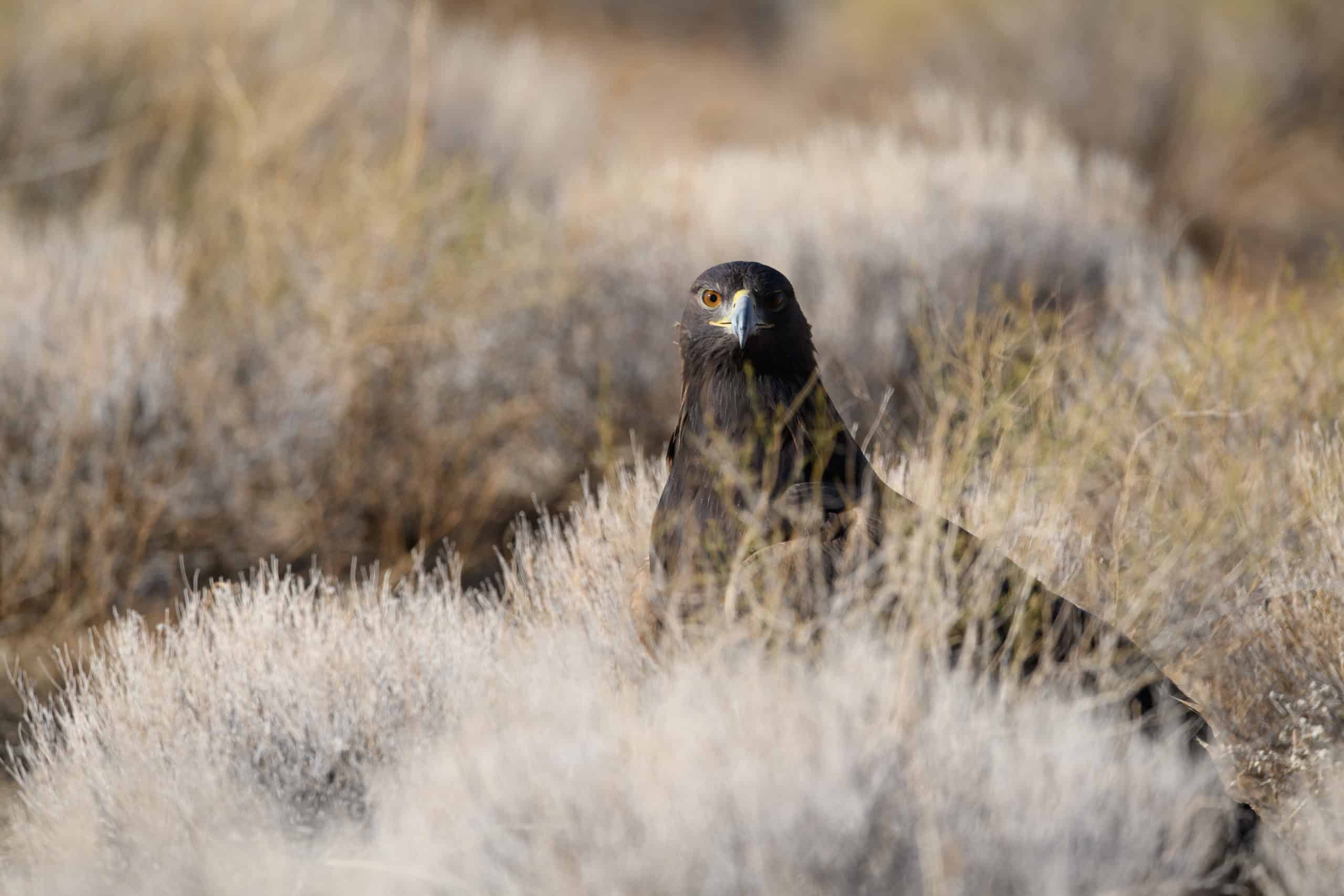Share this article
TWS2021: Persecution still a major problem for golden eagles
Despite protections, illegal shooting continues to plague golden eagles in the United States.
Researchers wanted to learn why these emblematic birds are still persecuted in many parts of the country.
Lauren McGough, a TWS member and postdoctoral researcher at Colorado State University Pueblo, first became interested in the question after studying the relationship between nomadic ethnic Kazakh peoples of Central Asia and golden eagles. Their culture has valued the raptors’ presence on the landscape for centuries, even partnering with them to hunt foxes and other wildlife for their fur—the eagles get the meat.
Upon returning to the U.S., McGough was surprised to find that persecution was still one of the leading causes for golden eagle (Aquila chrysaetos) deaths, despite the protection they receive under both the Bald and Golden Eagle Protection Act and the Migratory Bird Treaty Act.

Golden eagles may be opportunistically shot in some cases. Credit: Andrew Orr
In ongoing research presented at The Wildlife Society’s virtual 2021 Annual Conference, she examined some of the reasons people might shoot, trap or poison eagles. Understanding the root causes of this behavior, she thought, may better help conservation efforts to protect the raptors.
“If you can just get people not to shoot them, to do behavioral change, that would be a very cost-effective way to save eagle lives,” McGough said, adding that stopping deaths of such a slow-growing, long-lived animal would help their conservation.
She’s still in the midst of her research on the topic, but so far, McGough and her colleagues have conducted interviews with wildlife law enforcement officers, Indigenous group members, raptor rehabilitation staff, landowners and ranchers to explore people’s experience with golden eagles and some of the causes and motivations of their persecution.
One problem, she found, is a misconception about the potential danger that eagles might pose to people’s pets. McGough said the misinformed concept that golden eagles routinely carry off people’s cats and dogs is widespread—so much so that even mainstream news articles in publications like the Wall Street Journal publish pieces with titles like “Bald Eagles Are Back. And They Want to Eat Your Pets.”
McGough said “it’s the rarest of the rare” for eagles to carry off people’s pets, calling the article and others like it “unsubstantiated fear mongering that virtually any raptor expert would refute.”
In fact, golden eagles usually stay away from humans and their homes, she added. And when they do catch larger prey items like sea gulls, for example, they often eat the bird on the ground near where they caught it. Eagles carrying off pets is “purely human imagination for the most part,” she said.

Some golden eagles may be attracted to areas where recreational shooting is common. Credit: Andrew Orr
Her research has also revealed that recreational shooters sometimes kill golden eagles. In some cases, eagles may show up in areas where people are legally shooting groundhogs (Marmota monax), squirrels or prairie dogs.
“There appear to be crimes of opportunity—they are not planned out,” McGough said.
The situation is complicated because golden eagles can be conditioned to show up to these areas when they hear shooting, since the activity often produces a meal for the raptors. Aside from the possibility of getting killed by recreational shooters looking for a target, this problem also contributed to an increase in lead poisoning—another leading cause of golden eagle death.
“We are finding that recreational shooting is likely a big contributing factor especially when it is in areas of high eagle density,” she said.
McGough said that her research team has also submitted Freedom of Information Act requests to see records of people that have been prosecuted for shooting eagles. The hope is that she may be able to interview people charged with the crime and learn more about the causes of golden eagle persecution.
But overall, she said that the way society views eagles and other carnivores may be the reason for the persecution.
“I personally think it has a lot to do about how we value predators,” she said.
The ultimate goal is to find out places where wildlife managers can employ more effective intervention strategies to protect golden eagles.
“There are pieces missing that we’ve got to figure out,” McGough said.
Header Image: Persecution is a leading cause of death for golden eagles in the U.S. Credit: Andrew Orr








